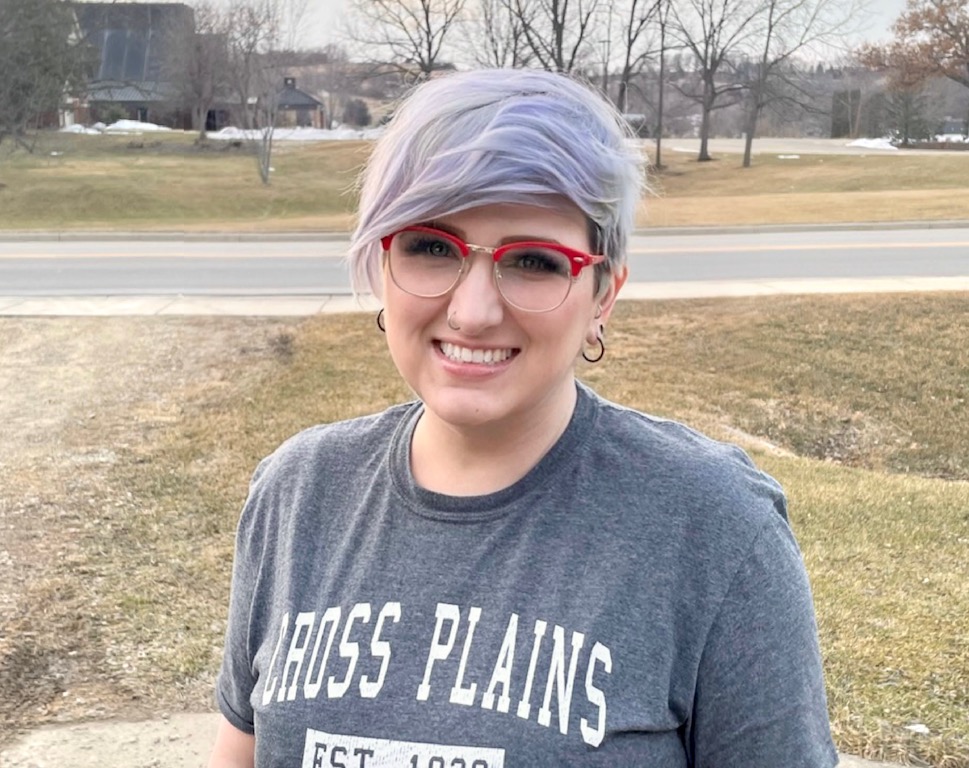Dane County has joined a nationwide relaxing of COVID-19 restrictions, but the immunocompromised and their doctors worry the absence of guidelines puts those with vulnerable immune systems at increased risk.
Dr. Jeannina Smith, medical director of the Transplant Infectious Disease Program at UW Hospitals and Clinics, said the updated guidelines leave her patients behind.
“They really matter and they’re worth protecting,” Smith said. “And our current plan does not protect them at all.”
Dane County let its indoor mask mandate expire on March 1 in accordance with updated guidance from the Centers for Disease Control and Prevention, which redefined how it evaluates community-level risk and now only recommends universal masking in high-risk areas.
The Wisconsin Department of Health Services said earlier this month it supports the CDC’s new guidelines. Dr. Ryan Westergaard, chief medical officer for the department, said the end of a mask requirement doesn’t mean people hosting events or otherwise bringing people together should disregard the needs of people with increased risk from COVID-19.
“When we gather together, we can be mindful of that, and … we should incorporate that perspective on decisions about groups that share an indoor space about wearing masks,” he said.
Smith emphasized the CDC is no longer aiming to prevent infection, but rather its “goal is to reduce the number of patients who are hospitalized,” which she said doesn’t take into account the increased risk for immunocompromised people. While the CDC previously evaluated community transmission using case counts and percent of positive tests, they now focus on COVID-related hospital admissions and the percentage of hospital beds occupied by COVID patients, along with new cases.
A study from July found that vaccinated transplant recipients are more than 80 times more likely to get a breakthrough COVID infection than the general population of vaccinated adults, and they are 485 times more likely to face hospitalization or death as a result.
Immunocompromised people include more than just transplant patients. Smith said they also include cancer patients receiving chemotherapy or people suffering from immune system-related diseases such as rheumatoid arthritis and lupus. For the latter, patients often take medication that suppresses their immune system. The CDC has a list of other medical conditions that may increase one’s risk of serious illness from COVID-19, including disabilities, diabetes, pregnancy and others.
It’s estimated 3% of the U.S. population is immunocompromised, but “there’s a misconception that people who are immunocompromised are sick or not healthy,” Smith said. “They’re really active and productive members of society who therefore get exposed to COVID in their activities.”
Patient perspective
Natalie Gaba, a 56-year-old Verona resident with chronic cancer, is “very disappointed” that Dane County dropped its mask mandate and said she’s even more cautious about going out in public now that it’s gone.
“At least with the mandate, there was a certain modicum of protection,” Gaba said.

Gaba (Photo courstesy of Natalie Gaba)
When grocery shopping, Gaba said she looks to see if employees are wearing masks or if the store is crowded before deciding to enter. Once inside, she tries to shop as quickly as possible.
“I just wish more folks would understand and think about other people that are involved,” said Gaba, who is also a retired health care worker.
Smith recommended that all individuals continue to wear masks in places that are hard to avoid such as grocery stores, pharmacies and clinics.
“You don’t know if the person who’s in front of you in line at the checkout is a mother who’s receiving chemotherapy for her breast cancer, and you don’t know if it’s a kidney transplant recipient,” Smith said, adding that COVID can still spread from those who are asymptomatic.

“I want to meet people, I want to do things, but gosh, it’s kind of a calculated risk,” says Dane County Board Sup. Michele Doolan, a Cross Plains resident with primary progressive multiple sclerosis, which requires her to take medication that suppresses her immune system. (Photo courtesy of Michele Doolan)
Dane County Board Sup. Michele Doolan, 48, a Cross Plains resident with primary progressive multiple sclerosis, which requires her to take medication that suppresses her immune system, said the pandemic has forced her to limit her social interactions significantly.
“I want to meet people, I want to do things, but gosh, it’s kind of a calculated risk,” Doolan said.
Doolan said she caught COVID at her job in January, even while wearing a mask, and said she has a harder time walking now as a result.
“I worry because I won’t go (door-to-door), personally, for my campaign (for reelection for county supervisor),” Doolan said. Instead, she’s opting to call voters or pick a public place where voters can talk to her while socially distanced.
Dave Ogden, a Madison financial adviser with type 1 diabetes, said he feels “comfortable and confident” going out in public, sometimes without a mask, because he was able to get vaccinated and boosted and maintain his diabetes well. However, Ogden also said he would comply with any future mask mandates.
Jesika Bornsen, a 48-year-old Madison resident with the autoimmune disorder Guillain-Barre syndrome, said she’s OK with the lifting of mask mandates because she feels masking should be a personal choice. She takes issue with vaccine mandates, because she said they often discount those who are unable to get vaccinated due to various medical conditions, like herself.
Child challenges
There are special considerations for how COVID-19 can affect children, especially since a recent study in New York state found that the Pfizer vaccine isn’t as effective at preventing infection for children ages 5 to 11, and children under 5 still don’t have a vaccine available to them.
“It’s harder, because now I’m like, can I really go out in the community with my kids?” said Anna Stevens, one of the founders of Madtown Mommas, an advocacy group for parents of children with disabilities.
The Madison School District is requiring masks until after spring break, though the district is already taking a “phased approach” to modifying COVID restrictions.
Martha Siravo, another founder of Madtown Mommas, said lifting the county mask mandate felt like a huge turnaround from previous masking guidance.
“It’s concerning, because there was never really any middle ground for it,” she said, adding that previous decisions have often been walked back. In June, Dane County lifted all COVID restrictions only to reinstate an indoor mask mandate by mid-August.
Smith emphasized that due to the nature of COVID-19, “I can tell my patients to wear a mask, but we do know that it’s most effective when everyone masks.”

